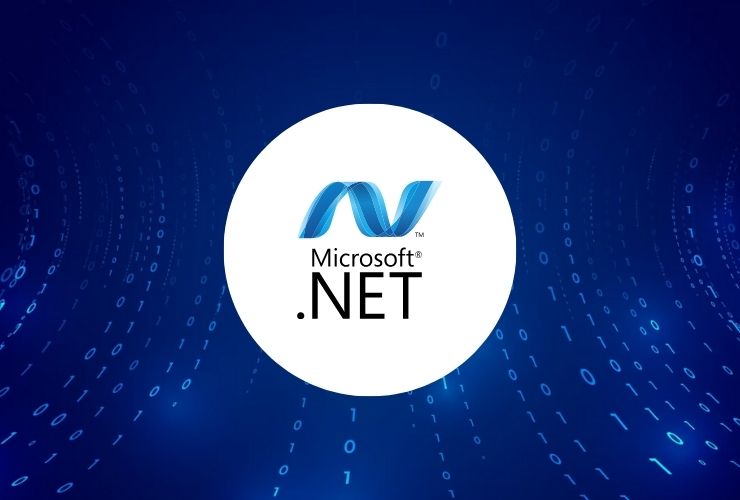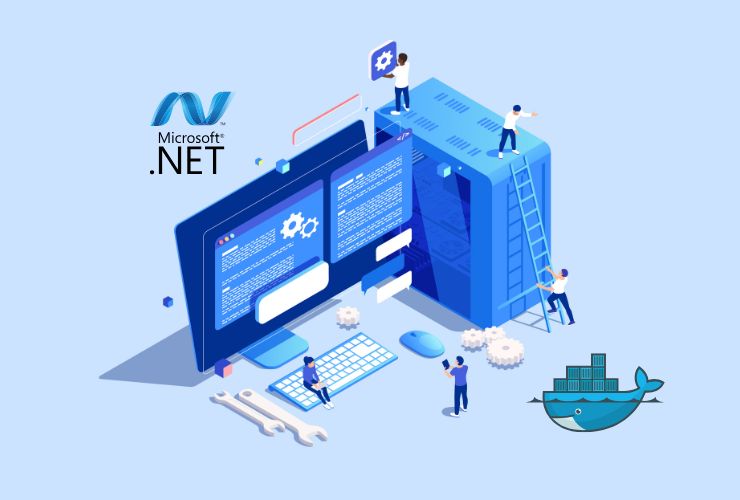When programmers are deciding on the best programming language to use when developing applications, they are usually faced with a broad selection of choices. One of the most popular, perhaps, particularly for enterprise applications, is.NET. Is.NET an appropriate programming language, though? Does it suit the requirements of today’s developers creating web, mobile, desktop, and cloud-based applications?
Here in this blog, we’re going to dive into what .NET is, its advantages, potential downsides, and why it can be a good or bad option for your development endeavors.
What is .NET?
.NET isn’t one particular programming language, but a framework that provides tools, libraries, and runtimes to develop software applications. It is most typically associated with languages like C#, F#, and VB.NET.
The.NET platform is built up of an array of different technologies:
- .NET Core: Cross-platform, open-source.NET that enables coding for Windows, macOS, or Linux.
- ASP.NET: ASP.NET is used for developing web applications and API apps.
- Entity Framework: Solid ORM (Object-Relational Mapper) tool for database interactions.
- Xamarin: Cross-platform framework for writing mobile apps.
- Blazor: A framework to create web pages with C# instead of JavaScript.
.NET is renowned for its flexibility, scalability, and full libraries, which render it highly sought after by developers, especially those developing enterprise-level applications.
Is.NET a Good Programming Language?
Here are the benefits and some of the issues in using.NET as a programming language, emphasizing its different features:
1. Versatility and Cross-Platform Support
One of the key strengths of .NET, especially with the advent of .NET Core, is its cross-platform capabilities. With .NET, developers can build applications that run seamlessly on Windows, macOS, and Linux. This flexibility allows businesses to reach a wider audience, and developers can create solutions across multiple environments.
.NET’s environment also includes libraries and frameworks like Xamarin, which allows you to develop mobile applications on iOS and Android with a single shared codebase. If you need to create apps for multiple platforms without having to learn individual programming languages for each platform,.NET provides you with one platform for all your needs.
2. Performance and Speed
As for performance,.NET is unmatched. With the introduction of.NET Core, the performance has become much faster, and the majority of developers report that.NET-based projects run as well as or even better than projects built with other popular languages like Java or Python.
The .NET Just-in-Time (JIT) compiler translates code at runtime and facilitates high execution performance. Additionally, .NET’s garbage collection, memory management based on garbage collection, and high-performance libraries simplify runtime efficiency, and it is suitable for building large-scale, high-performance applications.
3. Developer Productivity
.NET provides a rich set of tools that enhance developer productivity. Choices including Visual Studio, Visual Studio Code, and JetBrains Rider provide robust IDE support with good debugging, code completion, and testing features. The tools facilitate developers to code, test, and debug more effectively.
The NuGet package manager simplifies the use of third-party libraries, thereby saving time redoing the wheel. The C# programming language per se is itself contemporary, readable, and high-powered, again helping to improve developer productivity.
4. Strong Ecosystem and Libraries
.NET’s world is vast, with libraries for nearly every aspect of application development, from managing databases with Entity Framework to web development with ASP.NET. Even specific libraries exist for working with networking, encryption, and files, so developers can readily find the solution to complex problems without the need to implement everything from the beginning.
Additionally, Microsoft’s support of.NET ensures long-term support and constant updates, so developers can rely on the stability and constant development of the environment.
5. Enterprise-Level Support
For organizations that need enterprise-class solutions,.NET is an excellent choice. Large organizations use.NET for mission-critical applications due to its reliability, security, and scalability. It is also fully integrated with other Microsoft technologies such as Azure and SQL Server, making it an even more ideal choice for businesses already invested in the Microsoft platform.
.NET is also well supported by cloud-native applications, so it can more readily be moved and developed in the cloud with the likes of Azure Functions or Azure App Services.
Possible Downsides of.NET
There are a couple of possible downsides to.NET that should be taken into account for specific kinds of projects:
1. Newbie Learning Curve
If you are new to programming, the .NET universe is rather overwhelming. There are just so many tools, libraries, and frameworks to become comfortable with, especially when working on complex systems like ASP.NET Core or Entity Framework. Even though C# is a welcoming language, the sheer number of .NET tools and features is overwhelming for new programmers to grasp.
2. Platform Dependency (for Older Versions)
While.NET Core is cross-platform,.NET Framework (its predecessor) is predominantly Windows-bound. If you are working with legacy applications based on.NET Framework, your own work may be limited to the Windows platform. This limitation can become an issue if you wish to create cross-platform applications from scratch.
3. Smaller Talent Pool (Compared to JavaScript)
Even though the demand for.NET developers is great, especially in enterprises, the talent pool is not as deep as other more widely spoken languages like JavaScript. This will make it marginally more difficult to hire project developers for your project, mainly for small teams.
Is.NET the Right Choice for Your Next Project?
Whether.NET is suitable for your next coding project largely depends on your specific requirements. If you are building a cross-platform web application, mobile application, or enterprise solution,.NET is an excellent choice that offers speed, scalability, and a robust ecosystem. Its C# language is robust, contemporary, and supported by a humongous set of libraries, and therefore it’s a very productive platform for developers.
Conversely, if you are undertaking a project involving rapid prototyping or spending a lot of time with the front-end, you might conceivably employ alternatives like JavaScript/Node.js. However, for business and enterprise applications as a whole, .NET is among the most reliable and effective frameworks available.
Conclusion
In short,.NET is an excellent option for most types of development, ranging from web and mobile applications to sophisticated enterprise software. Its performance, tools for development, and enormous ecosystem render it a powerful choice, especially for large-scale applications. There are some limitations, especially when using older framework versions, but.NET Core offers a modern, cross-platform alternative that continues to expand to meet developers’ needs.
So is.NET a good language to code in? For most business and programmers, the answer is a resounding yes. If you need a powerful, high-performance framework that has good enterprise and community support,.NET is a safe bet to use.














